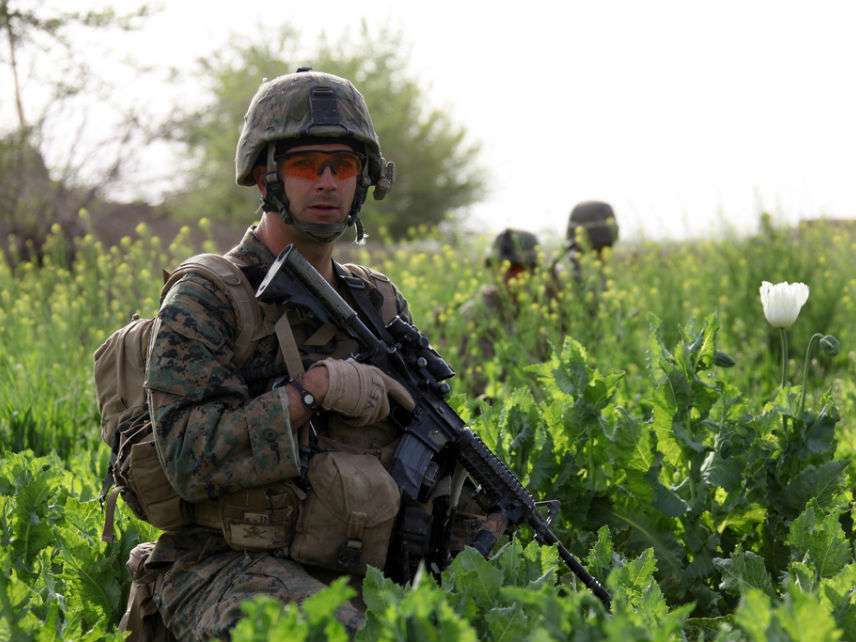2017 a Record Year for Opium Poppy Cultivation in Afghanistan
The fruits of 16 years of war

Opium poppy cultivation has hit a record high in Afghanistan, according to a report from the United Nations Office on Drugs and Crime and Afghanistan's Ministry of Counter Narcotics. The milestone is just the latest in a long string of failures associated with Washington's 16-year war in Afghanistan and its even longer ;war on drugs.
The U.S. has spent more than $100 billion on reconstruction in Afghanistan since 2002, and more than $8 billion on counternarcotics efforts alone. Yet while 750 hectares of poppy fields have been eradicated there this year, another 328,000 hectares were cultivated in 2017—up from 201,000 hectares in 2016.
According to the U.N., the average yield this year has been about 27 kilograms per hectare—up from 23 kilograms last year. And three formerly poppy-free provinces are once again hosting poppy fields.
"Rule of law-related challenges, such as political instability, lack of government control and security, as well as corruption, have been found to be main drivers of illicit cultivation," the report says. It adds that "scarce employment opportunities, lack of quality education and limited access to markets and financial services" all play a role in pushing farmers into the opium trade. Afghan security forces have also shifted their focus toward anti-government rebels in urban areas, creating more room for poppy production in the countryside. And agricultural advances—fertilizers, pesticides, "the use of solar panels for powering irrigation pumps"—may have also played a role.
The report notes that increased poppy cultivation and trafficking of opiates "will probably further fuel instability, insurgency and increase funding to terrorist groups in Afghanistan." It will also mean "more high quality, low cost heroin" reaching consumers around the world.
The report does not offer much in the way of policy proposals. It suggests that "continuing analysis and monitoring of the links between the rule of law, illicit drug cultivation, production, and trafficking" will help support the Afghan government's eradication efforts—typically mushy bureacuratic lingo from the United Nations. For the United States, though, the policy conclusions ought to be simple: The war in Afghanistan and the war on drugs are both failures, and the U.S. should extricate itself from both. Whatever our forces are doing there, it doesn't seem to be helping.


Show Comments (11)